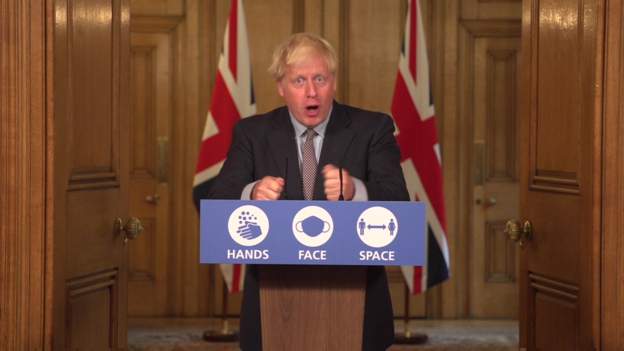Leaver or Limpet – How long with Johnson lead?

When dictionaries announce their ‘Word of the Year’ it will undoubtedly be ‘COVID’, ‘Social Distancing’, or something related. But ‘Superforecaster’ is another word which has had a big 2020.
Promoted by Dominic Cummings, who gave copies of Philip Tetlock’s ‘Superforecasting’ to all SpAds as required reading, a Superforecaster is someone very skilled in the practice of prediction. While they aren’t flawless, their track record is impressive. I raise this because political punters (and gamblers of all kinds) could learn a lot from them. And because they have a very different view of Boris Johnson’s longevity as PM than the betting markets.
You can currently get 1/2 (67%) at Paddy Power/Betfair Sportsbook that Boris Johnson remains PM to 2022, 4/5 (56%) at Betfair Exchange he lasts to July 2022, and 5/4 (44%) at Unibet/888Sport that he’s there in 2023. By contrast the Good Judgement Open, a forecasting tournament from which Superforecasters are recruited, gives just a 12% chance he ceases to be PM by mid-September 2021. While the deadlines don’t quite match, there is clearly a major disparity in forecasts. So how could Johnson cease to be PM?
Death/Incapacity
Let’s start with the simplest and least desirable option. Rumours persist of lingering effects from Johnson’s brush with COVID, but I am skeptical. If it is seriously hampering his ability to do the job then he hides it well and has managed for months already. More generally, he is 56 and seems to be moderately fit. A man of his age has a less than 1 in 100 chance of dying in any given year. Given his wealth and political status, it’s safe to say he will have an even lower risk.
Despite the rumours in the papers, I don’t think this is more than a negligible chance – even if we include the risk of a non-fatal incident which renders him unable to be PM.
Losing a General Election
Boris Johnson is highly unlikely to lose an election in the next year or so. There’s a simple reason for this: there’s unlikely to be an election.
In December 2019 Boris Johnson led the Tories to an 80 seat majority. Since then, and especially since Corbyn was replaced as Labour leader, the Tory poll lead has fallen considerably. While things can change, the incentives for Johnson to call a snap election seem very small.
Additionally, the purpose of such an election is unclear. I suspect Conservative minds still vividly remember the collapse in Theresa May’s poll lead during the 2017 election campaign, and many believe a factor was her not convincing the public the new election was justified on non-partisan grounds.
Unlike her, Boris Johnson already has a large Commons majority. He doesn’t need an election, and one is unlikely to improve his position. Perhaps events will intercede, but I think it is very unlikely he will call one in 2021 and fairly unlikely in 2022.
Being deposed by his party
This is the main source of rumours and bets, I think. But Prime Ministers are hard to dislodge.
They can give, or withhold, Cabinet posts to win loyalty. They have the Chief Whip. They have some loyalists simply by the nature of having gotten the job in the first place. And no-one finds it unseemly for them to try and hold on to the job, whereas a colleague manoeuvring for position needs to be very careful it doesn’t come across as brazen (though certain people have been less subtle in recent years).
This leads to speculating about leadership challenges being far more popular than launching them. I blame the media for this, they can’t resist how exciting a challenge would be and so forget to reflect how unlikely it is to actually happen.
Look at recent history: It is easy to forget that after Theresa May lost the majority in 2017 she remained Prime Minister for over two years, despite have few true supporters in the party. This was due to the factors above and an additional one: If you topple a PM you can’t control who replaces them. Various factions may dislike aspects of Johnson’s leadership, but if they agitate for his removal they risk an even worse (from their perspective) replacement.
Griping to the papers is one thing, but pulling the trigger is very different. Are Tory MPs really going to swing the axe barely a year or two after Johnson won his first general election handily? Previous deposed leader had been in post for considerably longer than he has. I think that, even if polls turn against him, he’d be given some time to turn it around.
Final thoughts
The market and the media often overestimate the chances of dramatic events, but mostly MPs don’t deliver the goods. A US pollster said just before the 2012 election, “Anything can happen in the next few days, but it probably won’t.” Extend that to ‘couple of years’ and my view is well summarised.
I think all of the bets identified above are good ones, but for simple value I think the Betfair/PP odds that he will survive 2021 are best. The time horizon is really short for such a dramatic change in fortunes. Dominic Cummings was right: We could learn a lot from the Superforecasters.
All odds correct as of 6 December 2020.
Pip Moss
Pip Moss posts on Political Betting as Quincel, and Twitter as @PipsFunFacts. He has bets on Johnson surviving to Jan and July 2022.